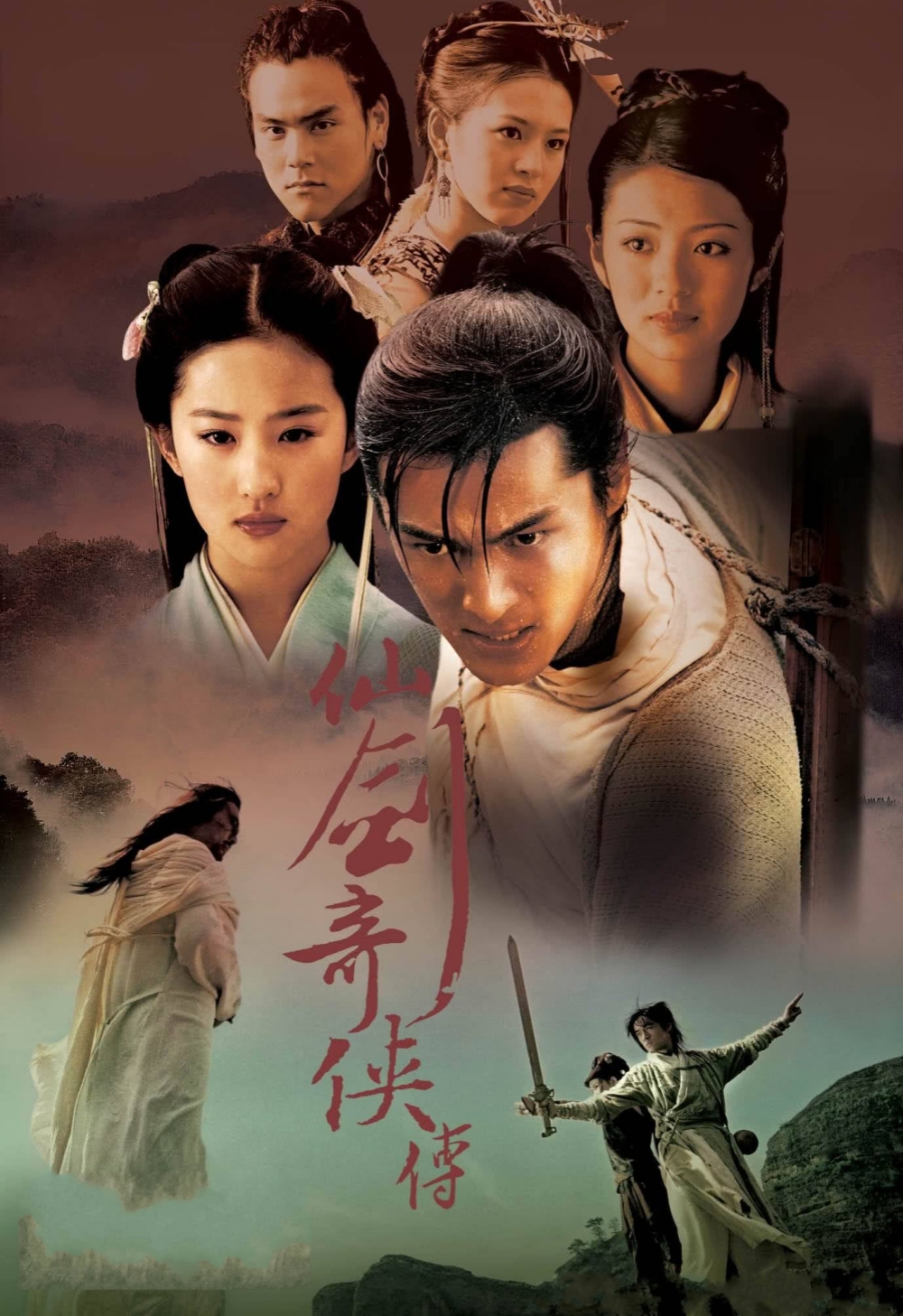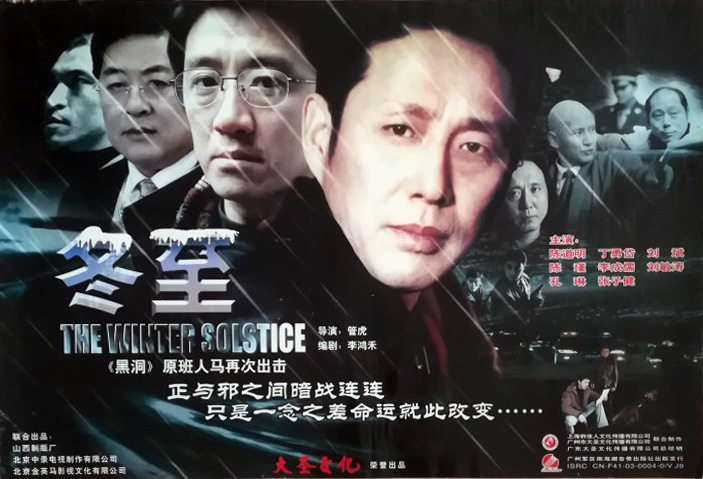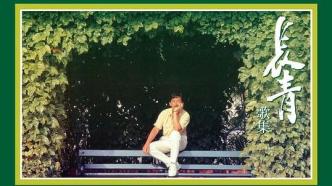
Editor's note: This is a nostalgic theater.
Regarding Chinese pop music, perhaps taxi drivers have the most say. Passengers open the door and take a seat, slipping into the time of strangers. The hearing drives the vision. No matter how small the space is, it will be full of intertwined stories. I don’t know how many people, like me, met a good song in a taxi.
Old songs are nice and fragrant, like walking into a time and space tunnel. The first few notes open the door to memory when you smell them. It’s about first love, lost love, and reunion. It’s about the high-spirited self at that time. When I listen to it again, I can’t help but shake my head. Without such an era, we wouldn’t have been able to shape who we are now.
I thought that many old songs have been lost with the times, and many people have missed it before they have heard it. I accidentally searched for comments on a music portal and found out that people born in the 2000s were also listening to it. They also lamented that they were born too late and missed a popular trend. The peak era of music.
Recently, I have listened to a few old songs again. Some are cold on the outside but hot on the inside, and some are hot on the outside and cold on the inside. They have been stubborn all their lives, as if they were a friendly face reunited after a long separation. If it is a music program such as "Our Song" and "Summer of the Band" Adaptation options, will look forward to it.
It’s time to show your age. How many songs have you listened to?
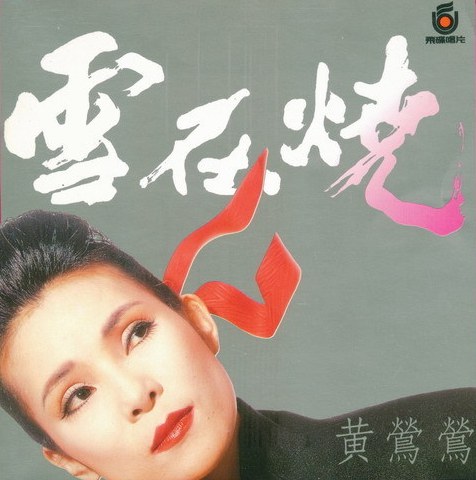
"Snow is Burning"
Singer: Huang Yingying
Lyricist: Yang Lide Composer: Cao Junhong
Burning snow is used to describe a concrete emotion. This song "Snow is Burning" is like Van Gogh in the song, with extravagant vitality.
"Snow is Burning" was sung by Huang Yingying and was included in the music album "Snow is Burning" released by UFO Records in 1987.
This album was also a concept album that was quite rare in the Chinese music scene at that time. If you are interested, you can pick it up and listen carefully from beginning to end. It is indeed well-made.
In order to match the theme of the movie of the same name, "Snow is Burning" has a warm overall tone, expressing the true feelings of burning life in a world as cold as snow. The desolation of the erhu turns into intense passion amidst the intense drum beats, depicting the conflicts and intense ups and downs of people's hearts. The arranger is Chen Zhiyuan, who is worthy of being a master for using the erhu to create a fierce sense of fire in a work full of despair.
"Snow is Burning" established the "post-modern" artistic outlook that Huang Yingying flaunted through music, and became a new music style trend in Taiwan's music scene. Huang Yingying is also one of the most courageous singers in Taiwan to try various new musical feelings.
Most of Huang Yingying's most popular songs are movie songs, such as "Buried Heart" (movie "Ruan Lingyu"), "Heart Cry" (movie "The Story of Rose") and this song "Snow is Burning". Perhaps Huang Yingying's singing method pays special attention to the beauty of the voice and subtle changes in emotion, and also pays great attention to the innovative and experimental effects of music, so there is too much storytelling in her voice.
"Snow is Burning" was directed by Zhu Yanping, Tan Jiaming, and Eric Tsang, and shot three different versions of the MV. If you have time, you can check it out.
Some people say that the composition, arrangement and singing of "Snow is Burning" are the peak of pop music. The poetic lyrics and bold and avant-garde style allow people to see pictures in the sound and read literature in the music. Although "Snow is Burning" did not enter Taiwan's top 100 records, it is indeed a milestone work in Huang Yingying's life.
In today's terms, "Snow is Burning" has almost become an IP. Wen Ruian wrote a novel, Tan Jiaming made a movie, and Wan Fang staged a stage play.
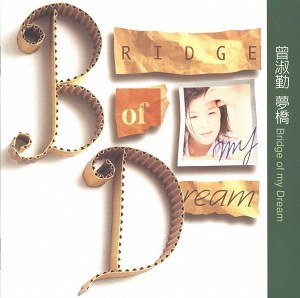
"Your love and hate is a huge suspense"
Vocals: Zeng Shuqin
Lyricist: Li Manting Composer: Bobida
Zeng Shuqin is one of the most important female urban folk singers in the Chinese pop music scene. A girl from the mountains and forests of Taiwan. Ever since she picked up her first guitar in the second grade of elementary school, playing and singing has taken up all her time outside of school. And she, who has always been inarticulate, has also cleverly grown up. The most authentic emotions are recorded through words and notes.
"Your Love and Hate is a Huge Suspense" is included in Zeng Shuqin's 1996 album "Dream Bridge".
From "Back Wave" in 1988 to "Dream Bridge" in 1996, Zeng Shuqin has released a total of 9 albums, "Lu Binghua", "No Longer Waiting for Heaven", "Love and Business", "Autumn Regret on a Passenger Journey", " Songs such as "Passenger Outside Love" and "Wandering Alone" are classics of an era. After Zeng Shuqin's Dianjiang Records was acquired by EMI in 1996, she did not release any new albums and gradually faded out of the music scene.
Zeng Shuqin's songs all have smooth and uncomplicated melodies. More importantly, in that classic era of Chinese pop music, the strong literary color in her songs is even more admirable.
Nowadays, the lyrics seem to be quite direct to women’s hearts, especially the sentence that tortures the soul:
I am exhausted and confused, should everyone find a partner?
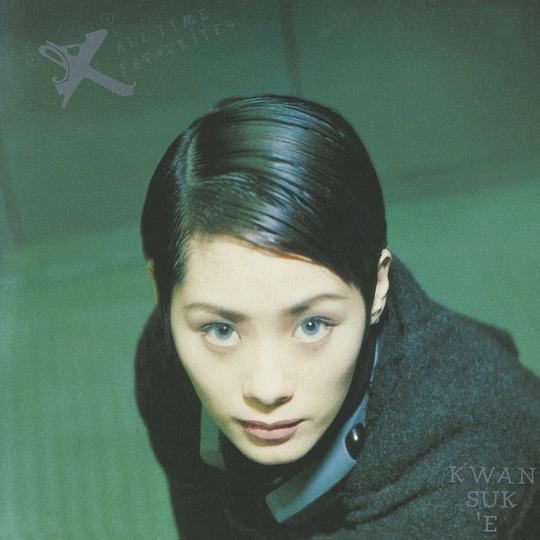
"Midnight Harbor"
Vocals: Guan Shuyi
Composer: Masashi Sagawa Lyrics: Pan Weiyuan
Guan Shuyi is avant-garde and mysterious, with a unique super charm. She can be as passionate as fire, and her voice is as cold as ice. She is uncoordinated but logical, and others can't imitate her twist but not pretentiousness.
In terms of strength, she was the only Hong Kong female singer in the mid-1990s who could be as famous as Faye Wong in terms of singing skills. Her character and rugged musical path destined her to never become a diva singer like Faye Wong or even Sammi Cheng who could dominate the Hong Kong music scene.
"Midnight Harbor" was originally written as "Autumn Sakura" by Momoe Yamaguchi in 1977, and was first covered by Zhen Chuqian in Hong Kong in 1988. In 1995, Guan Shuyi covered it and incorporated it into the album "EX All Time Favorites".
Masashi Sagawa's original song is restrained and deep, and the lyrics of "Autumn Sakura" are about a woman coming out of the palace to thank her mother for her kindness, which resonates with Yamaguchi Momoe's life experience and is quite touching.
After being covered by Guan Shuyi, this song is really chilling to the bones, and it is very suitable for calming the restless heart. Kwan Shu-yi's cover uses breathy vocals to give it a strong psychedelic atmosphere, which is even better than the original.
Guan Shuyi recorded her own high, high and low harmonies in this song, and also pushed the harmonies slightly forward, so that the harmonies are in front of the singing. The ethereal harmonies are intertwined with the psychedelic singing, which is more like "I don't know the true face of Mount Lu, I just want to sing because of it." The feeling of "being in this mountain" is like the confusion and confusion that love brings to people.
The mood of the lyrics is bleak, with a hint of despair. Put it out while walking in the city, and the noisy world will disappear in an instant.
I have read the most vivid comment about Guan Shuyi: When she opened her mouth, she seemed to be sighing in the fog.
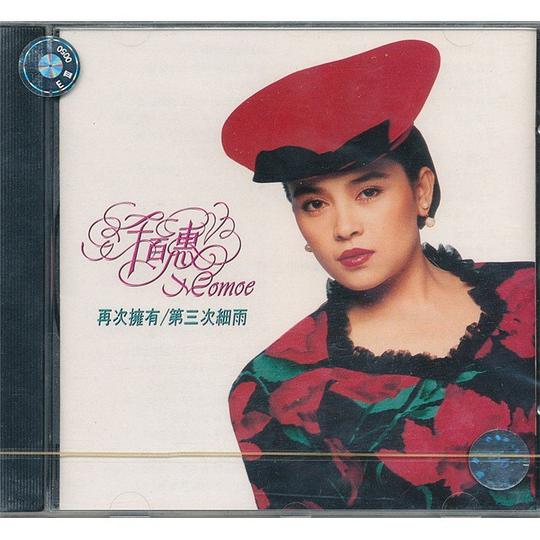
"Tears of Love Letters"
Vocals: Qian Baihui
Lyricist: Xiaochong Composer: Tong Ange
The name Qian Baihui makes many people think that she is Japanese. In fact, she was born in Hsinchu, Taiwan Province, China on May 4, 1963. She is a Taiwanese female singer. When I heard her singing at that time, I was just surprised, how could there be someone with such a voice! Transparent and clean, in current terms, it sounds like a sound produced by AI.
Entering the music scene in the 1980s, Qian Baihui became a popular first-line singer on both sides of the Taiwan Strait and Southeast Asia. They successively performed popular songs such as "Walking Through the Coffee House", "When I Miss You", and "Misty Rain". After getting married, he retired from the music scene for nearly 10 years. He came back in 2003 and released the album "Believe in Myself".
The song "Tears of Love Letters" was written by Xiaochong, composed by Tong Ange, and sung by Qian Baihui. It was included in Qian Baihui's third album "Own Again" in 1986. There are 12 songs in the album, and "Tears of Love Letters" is ranked third on the B-side.
When you listen to old songs again, you will inevitably feel the profound traces of the times, but at that time, Xiao Chong, Tong Ange, and Qian Baihui were all new generation musicians in the music world, and "Tears of Love Letters" can also be said to be a quite trendy work.
The special thing about this song is that it abandons the lyrics and has a sobering rhythm. If it had to be included in the farewell love song, it would definitely be a classic representative of "you can afford it but you can let it go". Qian Baihui's voice was high and bright, like silk and bamboo, teasing but not stopping. The melody of this song is simple and easy to sing, and the "innocent" lyrics are perfect for a punk band to re-interpret without any care.
"I've thought about it, I'm not wrong..." Isn't it like the way straight men feel aggrieved and at a loss when their girlfriends get angry and apologize?
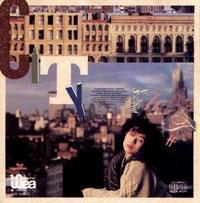
"besides"
Vocals: Lin Yilian/Wang Jie
Lyricist: Pan Yuanliang Composer: Li Zongsheng
As the song begins, the streets are noisy with people, and the bells turn into the sound of the wind... The movie-like "Also" is destined to be an ageless love song.
"And" was written by Pan Yuanliang and composed by Li Zongsheng. It is a Cantonese song sung by Wang Jie and Lin Yilian. It is included in Lin Yilian's Cantonese album "Urban Touch Part 1", which was released by Warner Records on December 10, 1988. The Mandarin version of the song is "The End", sung by Li Zongsheng and Zheng Yi in 1983.
In terms of voice texture and emotional expression, Lin Yilian and Wang Jie both sing with thousands of words buried in their chests. In this song, we listen to a love story that has lasted for many years. Those who have to leave must eventually leave, and those who are hurt are eventually broken. The final sentence, "If there is fate, I hope this love will not change." It is really a warrior of restrained pure love.
In old love songs, the trumpet always appears in the transition of the arias. The trumpet is an instrument that is close to the human voice and has an open and clear attitude, which is best at soothing people's hearts.
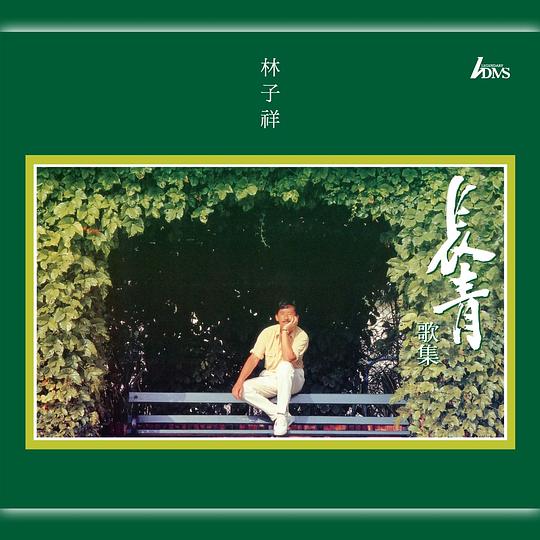
"dialogue"
Vocals: Lin Zixiang/Cai Lier
Lyricist: Chen Shaoqi Composer: Blow+Mathes
Being capable of both literary and military skills refers to Lin Zixiang, who was at the forefront of the trend decades in advance. He can turn fast singing into Wing Chun and slow singing into Tai Chi.
Lin Zixiang's Cantonese rap articulation is so clear that he sings every note into a blast sound, coupled with a deep and deep voice, dreamy and sexy.
This song "Dialogue" was included in the 1989 album "Evergreen Song Collection".
Although Lin Zixiang's identity in the song is that of a teacher, it is quite appropriate to put him in the role of father and daughter. The restlessness and confusion of girls in adolescence, as well as the various confusions and worries of their elders, can easily be replaced by any era. The lyrics are fluent, humorous and fun.
"What I'm most afraid of is meeting those bad boys. If you say Love You Baby, you will have a baby..."
With Father Lin’s nagging advice, being a child is really a blessing.
The rhythm of this song itself is very city walk. Although the original work is eloquent, it also gives this song more possibilities.
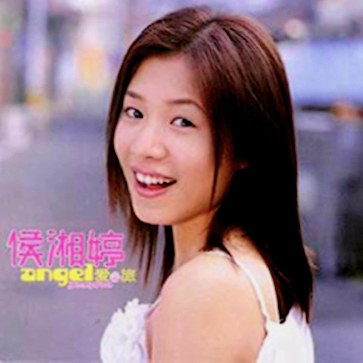
"ambiguous"
Vocals: Hou Xiangting
Composer: Chen Xiaoxia Lyrics: Yao Qian
The song "Ambiguous" has many versions and has been covered by many people. The most famous is probably the Cantonese version of Faye Wong.
In 1995, Huang Yingying returned to EMI Records and released the album "Spring Light", which included "Love Snow" written by Yao Ruolong and composed by Chen Xiaoxia. The producer was Yang Minghuang, the producer of Faye Wong's "Sky" a year ago. However, since it was not the first hit of the album, the response was mediocre after its release.
In the same year, Faye Wong released the Cantonese album "Di-Dar", re-wrote the lyrics and sang "Love Snow" into "Ambiguous". Faye Wong made this song famous.
In 2001, in Hou Xiangting's "Journey of Love" album, Yao Qian re-wrote Faye Wong's "Ambiguous" six years ago. The lyrics continued the original lyrics about still missing the other person after breaking up, but they were performed by Hou Xiangting, who was not yet 19 years old at the time. , but sang out the unique youthful innocence of a girl.
Young people will appreciate Faye Wong's decadent and uninhibited expressions even more. Maybe they can only feel the sweetness of love when their temples are gray and then listen to Hou Xiangting's "Ambiguous".
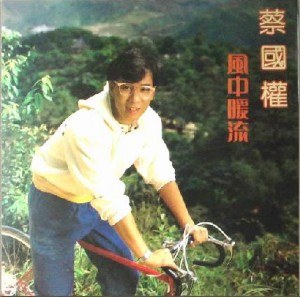
"Don't Decorate Your Dreams"
Vocals: Cai Guoquan
Lyricist: Zheng Guojiang Composer: Cai Guoquan
Cai Guoquan, who wears a pair of black-rimmed glasses, is not striking in appearance, is gentle and quiet, low-key and introverted. He has composed many good songs. Xu Xiaofeng's masterpiece "With the Current and Against the Current" was also written by him.
In fact, "Don't Decorate Your Dreams" is the most popular of all his songs. It is sad and tender with a hint of resentment, and expresses the pain of a middle-aged man losing love. Some people call this song the ultimate dog-licking song. .
Who wants a heart to be empty forever?
Who is willing to only decorate your dreams
I would rather let my heart be in pain for a long time
I don’t want to caress you either
…
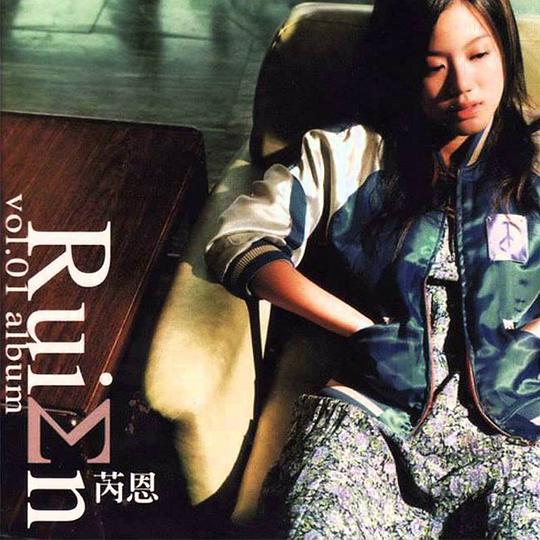
"White Feather"
Vocals: Rui En
Lyricist: Fang Wenshan Composer: Jay Chou
This song is also 20 years old.
It is said that "White Feather" and "Black Sweater" written by Jay Chou are about the past and present lives.
Jay Chou wrote this song "White Feather" and he really likes this song. Unfortunately, just like "Happy Birthday to Me" and "Summer Wind" were taken away by Wen Lan, this song "White Feather" was also used by the company to promote new singer Rui En, who is the singer of Jay Chou's MV "Code" heroine. Some people say that when Jay was a DJ on the radio, he felt aggrieved when he introduced this song.
As an R&B-style love song, "White Feather" does not have more melody design. The lyrics are really well written, straightforward and indifferent, but Ruien's full of tension voice, which is kind of free and easy like the female version of Wu Bai, makes the song more interesting. Very special attraction.
Fang Wenshan mentioned "White Feathers" on his Weibo and described it this way: It's getting cold... I think of a song I wrote before... It feels very wintery... "White Feathers".
I personally like this sentence:
The painting of migratory birds overwintering still hangs on the wall
I can't see anything being moved in this room.
…
People who are passive in relationships, people who are waiting for changes to happen, people who are obsessed with the present but forget the river, have all heard of "White Feather", right?
Having said that, Jay Chou sang for Rui En, which is not a loss.

